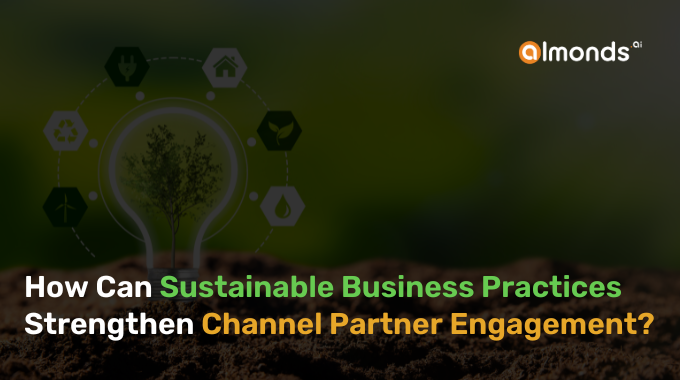Sustainability isn’t just a buzzword now but a necessity, especially when it comes to enterprises and businesses. Environmentally sustainable business practices not only pave the way for a brighter future but also make sound financial sense.
In this article, we’ll delve into the world of sustainable practices tailored to B2B organizations and explore strategies to boost channel partner engagement, helping your company not only stand out but thrive in the modern business landscape.
Now, let’s see the practices that should be implemented to achieve sustainability.
Partnering for Impact
Cooperation stands as the foundation of enduring success in sustainability. Brands must collaborate with like-minded organizations, NGOs, and local communities to make a difference. These partnerships can amplify your impact and create a win-win scenario.
Such as Unilever, a global consumer goods company, has partnered with the World Wildlife Fund (WWF) for a year in 2021. It promotes sustainable agriculture and reduces deforestation in their supply chains. This collaboration has led to significant reductions in carbon emissions and deforestation.
Key Takeaway: Collaborative efforts can lead to innovative solutions and broader reach.
Building Strong Channel Partner Alliances
Enhanced collaboration with channel partners forms the bedrock of B2B triumph. To truly excel, companies must forge robust alliances with their channel partners. It can magnify your influence, create value, and foster mutual growth.
i.e., Coca-Cola has a robust sustainability program that extends to its network of bottling partners. They work closely with these partners to improve water efficiency, reduce emissions, and promote recycling. This collaborative approach has strengthened their supply chain and sustainability efforts.
Key Takeaway: Collaborative efforts in B2B relationships lead to innovative solutions and expanded market reach.
Embracing Circular Economy Principles
Minimizing waste and reducing environmental impact are pivotal in B2B sustainability. The adoption of circular economy principles involving resource reuse, repurposing, and recycling within your business ecosystem is a game-changer.
Like the Swedish furniture giant, IKEA has implemented circular economy principles by offering furniture take-back and recycling programs. They refurbish and resell used furniture, reducing waste and extending the lifespan of their products.
Key Takeaway: Circular economy practices not only align with sustainability goals but also boost the bottom line.
Streamlining Sustainable Supply Chains
Revamping your supply chain is crucial for B2B sustainability. Through supply chain optimization to curtail emissions and waste, you can trim your environmental impact and boost efficiency.
Key Takeaway: A sustainable supply chain not only fosters trust but also offers cost-saving opportunities.
Leveraging Renewable Energy Solutions
Transitioning to renewable energy isn’t just about environmental responsibility; it’s a sound financial move. Solar, wind, and hydropower not only cut emissions but also offer long-term cost advantages.
Google has made significant investments in renewable energy sources, including wind and solar farms. In 2017, they reached their goal of purchasing enough renewable energy to match 100% of their global electricity consumption.
Key Takeaway: Investing in renewable energy demonstrates a commitment to sustainability and fiscal prudence.
Nurturing Relationships with the Green Loyalty Program
In the B2B sphere, your channel partners are indispensable. Ensuring their satisfaction and engagement is vital for sustainable success. Implement partner-centric programs, offer training and support, and foster a culture of collaboration.
The cloud-based software loyalty program management company Almonds AI is known for its channel partner engagement-centric approach to sustainability. We offer channel partners reward points for choosing eco-friendly products. Along with it, Almonds have set ambitious goals for reducing greenhouse gas emissions from their operations.
Key Takeaway: Engaged channel partners drive growth and reinforce your commitment to mutual success.
One Destination, Many Paths
Sustainable business practices aren’t a fleeting trend; they are the keystone of B2B prosperity in the near future. With advancing technology, more opportunities will arise for reducing environmental impact and driving positive change.
Embrace sustainability to secure a prosperous future and make a lasting impact on the world.







